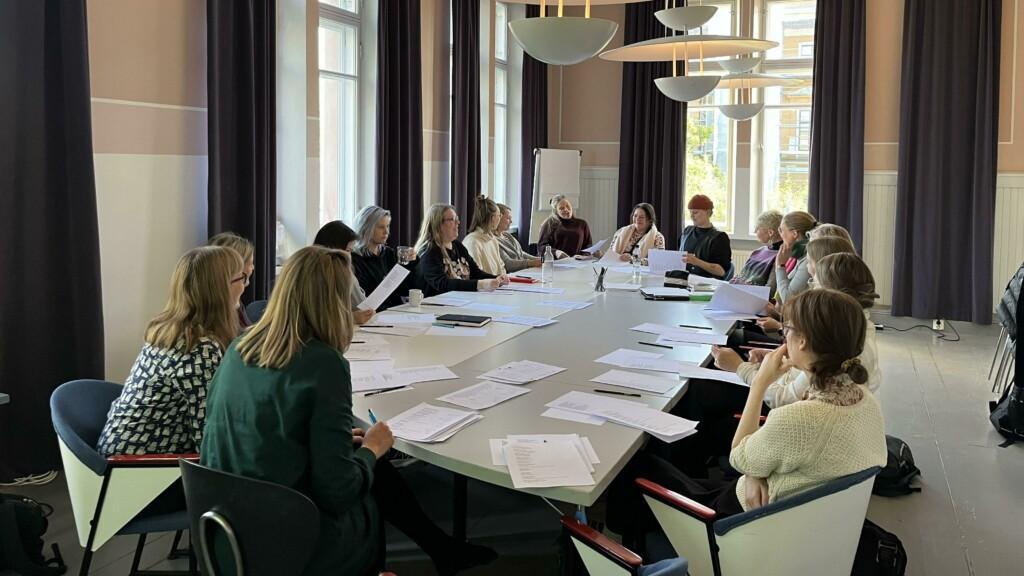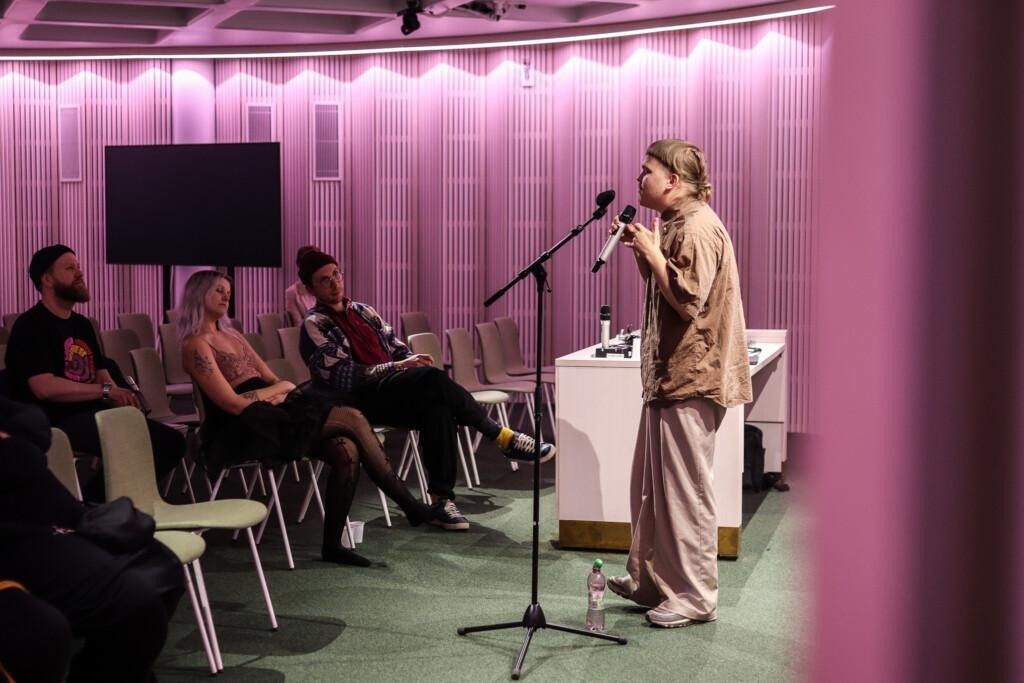What is the importance of poetry today? Can it make a difference? How do you encourage young people to take up poetry? These and many other big questions have been raised lately. As our international poetry project Poets of Today – Voices of Tomorrow is coming to a close, it is time to take a look back at what has happened so far.
Since spring had begun to arrive in Poland in mid-March, all the national teams of the international poetry project arrived for the last interim meeting of the project in one of the participant’s ARTeria’s home town of Gliwice. The project meeting organised by ARTeria focused on the planning of a methodological guide based on teacher training and school visits by the poets in the project. The guide, to be published online in English this autumn, will include tips on how to incorporate contemporary poetry into school education. The guide also includes poetry from all five project countries translated into English.
Teachers and poets working together to create pathways to poetry.
At the end of autumn last year, 10 young Finnish poets and the partner teachers from the project prepared for poetry visits to schools. They got to know each other, listened to and analysed poetry and discussed exercises suitable for different types of learners. During the winter, poetry visits took place in Oulu, Tampere and Vantaa in a total of 10 different schools, where the poets and the partner teachers reached almost 600 young people of secondary school and upper secondary school age. Each poet organized a visit, that was unique to themselves.
Writing a one-sentence biography, building rhyming couplets or creating a rap persona set the stage for playing with words. For young people, the personal touch of the poets, the writing exercises in the classroom and listening to poetry created meaningful experiences.

So, what did the teachers think about poetry and its role in the Finnish school system? The feedback gave poetry many different roles.
Poetry is an excellent tool for teaching mother tongue (Finnish language) and literature because it is concise, flexible, and playful. Poetry allows for the expression of emotions and the discussion of relationships. Poetry can be used to open social debate. Poetry gives space for students’ creativity, and channels for emotions and ideas.
Voice’s of Tomorrow

In March, our young poets met again, this time in Tampere. At the end of the meeting, they exchanged experiences from their school visits and talked about their future plans. The grant from Taike enabled the poets to make additional school visits during the spring of 2024, for which learning from each other’s experiences was valuable.
At the end of the day, a poetry event “Voices of Tomorrow “was organised for the public in the main library of Tampere, Metso. The event was introduced and hosted by Harri Hertell, the main poet of the Finnish team who acted as a mentor for the poets during the project. For an hour, the audience had the opportunity to enjoy a varied selection of contemporary poetry. The feedback from the audience echoed what has often come up during the project – poetry gives space to the imagination and lifts us above the everyday.
Featured image: Simo Nieminen at the Voices of Tomorrow poetry event. Photo by Ida Kalliosaari.

